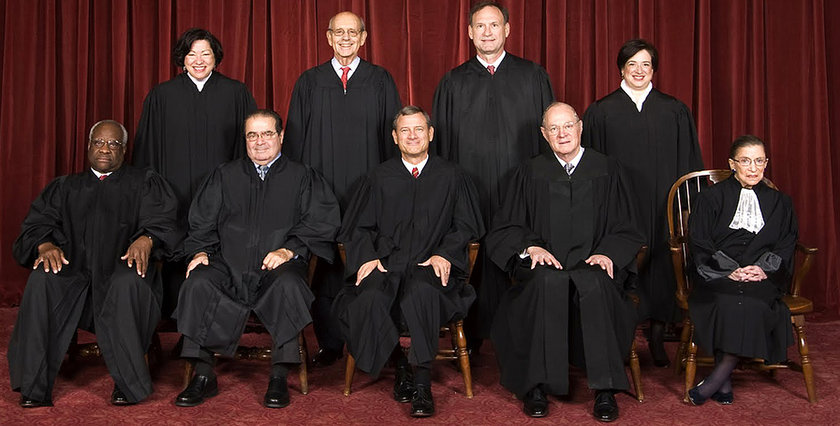(Above: Shaun McCutcheon discusses his Supreme Court case, McCutcheon v. FEC)
Birmingham-area conservative activist Shaun McCutcheon takes one more step toward election law immortality today as his challenge to aggregate limits on federal campaign contributions goes before the United States Supreme Court.
In September, Yellowhammer wrote extensively about McCutcheon’s bid to “change the world.” Here’s a brief explanation from our previous post of what McCutcheon is seeking to do:
Donors are currently subject to limits on the amount of money they can contribute to candidates. $2,600 is the most a donor can give to any one candidate. That’s called the “base limit.” This number is the amount of money the Federal Election Commission believes protects donors’ First Amendment right to engage in the political process, while remaining below the threshold at which a donor could “buy” too much influence with a candidate or elected official.
But on top of the base limit, there is also a cap on the total sum of money a donor can donate to federal campaigns in general. It’s called the “aggregate limit,” and it’s set at $123,200.
In other words, if a donor wanted to give the $2,600 maximum donation to all 253 Democrats in Congress, she wouldn’t be allowed to because, even though no single candidate would receive over $2,600, the total amount donated ($657,800) would far exceed the aggregate limit.
Shaun McCutcheon, a Birmingham-area businessman and conservative activist, doesn’t think that’s right, and he’s taking his case all the way to the United States Supreme Court.
Oral argument for McCutcheon v. FEC will be heard today in Washington, D.C., and candidates, activists and First Amendment advocates will be watching closely.
SCOTUS’s website offers a good explanation of what exactly goes down during a case’s oral argument:
A case selected for argument usually involves interpretations of the U. S. Constitution or federal law. At least four Justices have selected the case as being of such importance that the Supreme Court must resolve the legal issues.
An attorney for each side of a case will have an opportunity to make a presentation to the Court and answer questions posed by the Justices. Prior to the argument each side has submitted a legal brief—a written legal argument outlining each party’s points of law. The Justices have read these briefs prior to argument and are thoroughly familiar with the case, its facts, and the legal positions that each party is advocating.
Yellowhammer spoke off the record earlier this week with several prominent attorneys. Every single one spoke favorably about the strength of McCutcheon’s case. Most of them believe his team will prevail, ushering in the next generation of campaign finance law — one with fewer limits but more accountability and transparency.
“This is a very important case about your fundamental free speech rights when it comes to politics,” McCutcheon told Yellowhammer recently. “This is important for the future of our ability to improve the dreadful situation we’re in. Bottom line: we want to change the world.”
Follow Cliff on Twitter @Cliff_Sims








